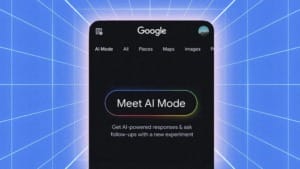AI may be reducing job opportunities for new tech graduates
AI may shrink entry-level tech jobs as firms hire fewer graduates and prefer experienced staff to handle advanced AI-driven tasks.

A growing number of employers are starting to use artificial intelligence (AI) to reduce staff, especially in tech roles. If you’re a recent graduate looking to break into the tech industry, this could make your job hunt more difficult than ever before.
Table Of Content
According to a recent survey by the World Economic Forum, 40% of employers plan to cut jobs where AI can take over repetitive tasks. This shift is now beginning to show in hiring patterns across the tech industry.
Fewer jobs for graduates in tech
New research from SignalFire, a data-driven venture capital firm, suggests that AI may impact entry-level hiring. By tracking job data from over 600 million professionals and 80 million companies on LinkedIn, SignalFire found that tech companies are hiring fewer graduates than last year.
In 2024, the number of new graduates hired by major tech companies dropped by 25% compared to 2023. Smaller startups also followed this trend, reducing graduate hiring by 11%. While the exact number of affected graduates was not shared, a SignalFire spokesperson confirmed it was in the thousands.
Meanwhile, experienced professionals are in higher demand. Big Tech companies increased hiring by 27% for individuals with two to five years of experience, and startups hired 14% more workers at that level. This shift clearly shows that companies now prefer skilled workers who need less training and can start delivering results quickly.
AI taking over common graduate tasks
Entry-level tech jobs often involve routine tasks like debugging code, gathering data, or preparing reports. AI tools now handle these tasks very well. As AI continues to improve, it’s becoming easier for companies to rely on technology rather than junior staff for this work.
Asher Bantock, head of research at SignalFire, said there is “convincing evidence” that AI plays a key role in this hiring change. AI’s ability to write and fix code, conduct financial research, and even install software has reduced the need for large numbers of junior staff.
One example comes from Gabe Stengel, the founder of AI startup Rogo. Speaking at a recent fintech summit, he explained how his tool can now do the same analysis work he once did as an investment banker. “We can put together the materials, check the company, and go through their finances,” he said.
Although big investment banks like Goldman Sachs and Morgan Stanley haven’t officially blamed AI for hiring fewer junior analysts, reports last year showed that some leaders had already considered cutting hiring by as much as two-thirds. There was also talk of reducing pay for junior staff, as the work has become less demanding thanks to AI support.
What can you do as a new graduate?
This change has created a difficult situation for those entering the job market. Without experience, it’s harder to get a job—and without a job, gaining experience is impossible. This problem has existed for many years, but the rise of AI seems to be making it worse.
Heather Doshay, SignalFire’s people and talent partner, believes the best way forward is to embrace AI rather than fear it. Her advice to new graduates is simple: learn to use AI tools better than anyone else.
“AI won’t take your job if you’re the best at using it,” she said. By gaining strong skills in AI, you can stand out and prove your value to employers who are still hiring.
So, if you’re looking to land your first job in tech, mastering AI could give you the edge you need in an increasingly competitive job market.
















